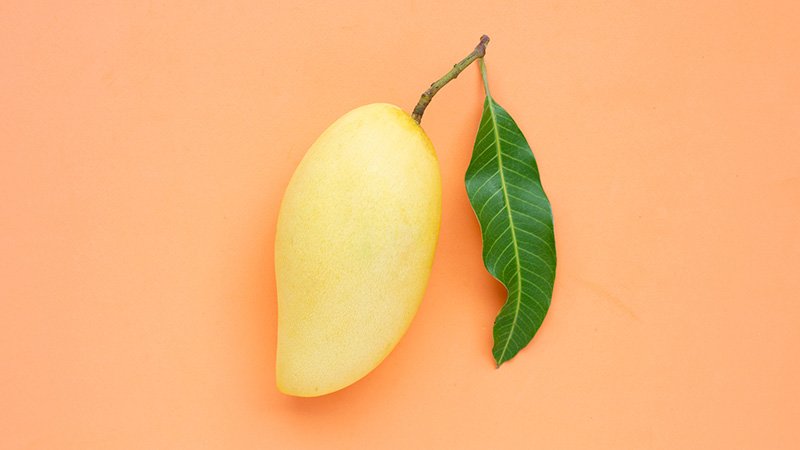The incorporation of traditional medicinal plant knowledge into modern pharmaceutical practices is fraught with challenges, particularly with regard to cultural and ethical considerations. Traditional medicinal plant knowledge is often deeply embedded in the cultural and spiritual practices of indigenous communities, and its appropriation by modern pharmaceutical companies can raise significant ethical concerns. There is a risk of exploitation, with traditional knowledge being misappropriated without proper recognition or compensation to the communities from which it originates.
Moreover, the cultural significance of medicinal plants and the rituals surrounding their use must be taken into account when integrating traditional knowledge into modern pharmaceutical practices. It is essential to approach this integration with sensitivity and respect for the cultural heritage of the communities involved. Furthermore, the integration of traditional medicinal plant knowledge into modern pharmaceutical practices raises questions about the ownership and control of this knowledge.
Historically, indigenous communities have been marginalized and disenfranchised, and it is essential to ensure that they are not further exploited in the process of integrating their traditional knowledge into modern pharmaceutical practices. Mechanisms must be established to ensure informed consent, benefit sharing, and the protection of intellectual property rights, thereby guaranteeing that indigenous communities receive fair compensation for their contributions to modern medicine. These cultural and ethical considerations must be carefully navigated to ensure that the integration of traditional medicinal plant knowledge into modern pharmaceutical practices is conducted in a manner that respects and upholds the rights and dignity of indigenous communities.
Key Takeaways
- Cultural and ethical considerations play a crucial role in integrating traditional medicinal plant knowledge into modern pharmaceutical practices.
- Standardization and quality control are essential for ensuring the safety and efficacy of traditional medicinal plant products.
- Intellectual property rights and benefit sharing must be addressed to ensure fair compensation for traditional knowledge holders.
- Lack of scientific validation poses a challenge in integrating traditional medicinal plant knowledge into modern pharmaceutical practices.
- Sustainability and conservation efforts are necessary to protect the biodiversity of medicinal plants and ensure their availability for future generations.
Standardization and Quality Control
Variations in Preparation and Administration
Traditional medicinal plant knowledge is often passed down through generations orally, which can lead to significant variations in the preparation and administration of herbal remedies. This lack of standardization can pose challenges when attempting to integrate traditional knowledge into modern pharmaceutical practices, as it can be difficult to ensure consistency and reproducibility in the production of herbal medicines.
Ensuring Safety and Efficacy
Additionally, there is a need for rigorous quality control measures to ensure the safety and efficacy of herbal remedies, particularly when they are being used in conjunction with modern pharmaceuticals. This is crucial to prevent adverse interactions and ensure the well-being of patients.
Regulatory Approval and Market Acceptance
The lack of standardization and quality control in traditional medicinal plant knowledge can present challenges in terms of regulatory approval and market acceptance. Modern pharmaceutical practices are governed by strict regulatory standards, and there is a need to establish standardized protocols for the production, testing, and labeling of herbal remedies in order to meet these standards. This requires collaboration between traditional healers, modern scientists, regulatory authorities, and industry stakeholders to develop standardized protocols for the production and quality control of herbal remedies.
Intellectual Property Rights and Benefit Sharing
The integration of traditional medicinal plant knowledge into modern pharmaceutical practices also raises complex issues related to intellectual property rights and benefit sharing. Traditional medicinal plant knowledge is often considered to be a form of collective intellectual property that has been developed and preserved by indigenous communities over centuries. However, there is a risk that this knowledge could be misappropriated or exploited by modern pharmaceutical companies without proper recognition or compensation to the communities from which it originates.
There is a need to establish mechanisms for informed consent, benefit sharing, and the protection of intellectual property rights in order to ensure that indigenous communities are fairly compensated for their contributions to modern medicine. Furthermore, the integration of traditional medicinal plant knowledge into modern pharmaceutical practices requires careful consideration of how benefits are shared among all stakeholders involved. This includes not only indigenous communities, but also traditional healers, modern scientists, industry stakeholders, and regulatory authorities.
There is a need to establish fair and equitable benefit sharing mechanisms that recognize the contributions of all stakeholders and ensure that the benefits derived from the integration of traditional knowledge into modern pharmaceutical practices are distributed in a manner that is just and inclusive. Addressing these complex issues will require collaboration and dialogue among all stakeholders involved in order to develop mutually beneficial solutions that uphold the rights and dignity of indigenous communities.
Lack of Scientific Validation
| Challenges | Description |
|---|---|
| Lack of scientific validation | Traditional medicinal plant knowledge often lacks scientific evidence and validation according to modern pharmaceutical standards. |
| Standardization of dosage and quality | Ensuring consistent dosage and quality of medicinal plants can be challenging due to variations in plant species, growing conditions, and preparation methods. |
| Intellectual property rights | Issues related to intellectual property rights and traditional knowledge protection can arise when integrating traditional medicinal plant knowledge into modern pharmaceutical practices. |
| Regulatory hurdles | Meeting regulatory requirements for the use of traditional medicinal plant knowledge in pharmaceutical products can be complex and time-consuming. |
| Commercialization and sustainability | Finding a balance between commercial interests and sustainable use of traditional medicinal plant knowledge can be a challenge. |
One of the key challenges in integrating traditional medicinal plant knowledge into modern pharmaceutical practices is the lack of scientific validation for many herbal remedies. Traditional medicinal plant knowledge is often based on empirical observations and anecdotal evidence, rather than rigorous scientific testing. This lack of scientific validation can pose challenges when attempting to integrate traditional knowledge into modern pharmaceutical practices, as there is a need to demonstrate the safety, efficacy, and mechanism of action of herbal remedies through robust scientific research.
Additionally, there is a need to establish standardized protocols for the testing and validation of herbal remedies in order to meet regulatory standards and gain market acceptance. Furthermore, the lack of scientific validation for many herbal remedies can present challenges in terms of acceptance among healthcare professionals and consumers. Modern pharmaceutical practices are based on evidence-based medicine, and there is a need to build trust and confidence in the safety and efficacy of herbal remedies through rigorous scientific testing.
This requires investment in research infrastructure, capacity building, and collaboration between traditional healers, modern scientists, and regulatory authorities to conduct clinical trials and other forms of scientific validation for herbal remedies. Addressing these challenges will require a concerted effort to bridge the gap between traditional knowledge and modern science in order to build a robust evidence base for the integration of traditional medicinal plant knowledge into modern pharmaceutical practices.
Sustainability and Conservation
The integration of traditional medicinal plant knowledge into modern pharmaceutical practices also raises important considerations related to sustainability and conservation. Many medicinal plants are harvested from wild populations, and there is a risk of overharvesting and habitat destruction if proper conservation measures are not put in place. Additionally, there is a need to ensure that the cultivation and harvesting of medicinal plants are conducted in an environmentally sustainable manner that preserves biodiversity and ecosystem integrity.
This requires collaboration between traditional healers, conservationists, industry stakeholders, and regulatory authorities to develop sustainable harvesting practices and promote the cultivation of medicinal plants in ways that support ecological resilience. Furthermore, there is a need to address issues related to biopiracy and the unauthorized exploitation of genetic resources from indigenous communities. The integration of traditional medicinal plant knowledge into modern pharmaceutical practices must be conducted in a manner that respects the rights of indigenous communities over their genetic resources and ensures that they receive fair and equitable benefits from any commercial use of these resources.
This requires the establishment of mechanisms for informed consent, benefit sharing, and the protection of intellectual property rights in order to prevent biopiracy and promote ethical sourcing practices. Addressing these complex issues will require collaboration and dialogue among all stakeholders involved in order to develop sustainable and ethical approaches to the integration of traditional medicinal plant knowledge into modern pharmaceutical practices.
Access and Affordability
Preserving Traditional Knowledge and Preventing Commodification
Traditional medicinal plant knowledge has historically been accessible to indigenous communities through their own cultural practices. However, there is a risk that this knowledge could become commodified and inaccessible to those who have traditionally relied on it for their healthcare needs. It is essential to ensure that herbal remedies remain affordable for all communities, particularly those who may not have access to modern healthcare services or who may rely on traditional medicine due to cultural or economic barriers.
Collaboration for Equitable Access to Healthcare Resources
To address issues related to equitable access to healthcare resources, including herbal remedies derived from traditional medicinal plant knowledge, collaboration is crucial. Traditional healers, modern scientists, industry stakeholders, regulatory authorities, and healthcare providers must work together to develop strategies for ensuring that herbal remedies are accessible and affordable for all communities. Furthermore, promoting education and awareness about the safe use of herbal remedies is necessary to empower communities to make informed choices about their healthcare options.
Addressing Disparities in Access to Healthcare Resources
Addressing these challenges will require a concerted effort to ensure that the integration of traditional medicinal plant knowledge into modern pharmaceutical practices does not exacerbate existing disparities in access to healthcare resources. By working together, we can ensure that traditional medicinal plant knowledge is preserved and made accessible to all communities, regardless of their cultural, economic, or geographical background.
Collaboration and Communication between Traditional Healers and Modern Scientists
The integration of traditional medicinal plant knowledge into modern pharmaceutical practices requires collaboration and communication between traditional healers and modern scientists in order to bridge the gap between traditional knowledge and modern science. Traditional healers possess valuable insights into the use of medicinal plants based on centuries of empirical observations, while modern scientists bring expertise in rigorous scientific testing and validation. There is a need to establish mechanisms for collaboration and communication that respect the contributions of both traditional healers and modern scientists in order to develop mutually beneficial solutions for integrating traditional knowledge into modern pharmaceutical practices.
Furthermore, there is a need to build trust and mutual respect between traditional healers and modern scientists in order to foster productive partnerships that can advance the integration of traditional medicinal plant knowledge into modern pharmaceutical practices. This requires open dialogue, cultural sensitivity, and recognition of the unique strengths that each stakeholder brings to the table. Additionally, there is a need for capacity building initiatives that support traditional healers in documenting their knowledge and participating in scientific research, as well as training programs that enable modern scientists to engage respectfully with traditional healers and learn from their expertise.
Addressing these challenges will require a concerted effort to build bridges between different knowledge systems in order to create synergies that can enhance the safety, efficacy, and accessibility of herbal remedies derived from traditional medicinal plant knowledge. In conclusion, integrating traditional medicinal plant knowledge into modern pharmaceutical practices presents a number of complex challenges that must be carefully navigated in order to ensure that this integration is conducted in a manner that respects cultural heritage, upholds ethical principles, meets regulatory standards, builds an evidence base for safety and efficacy, promotes sustainability and conservation, ensures access and affordability for all communities, and fosters collaboration between traditional healers and modern scientists. Addressing these challenges will require collaboration among all stakeholders involved in order to develop mutually beneficial solutions that uphold the rights and dignity of indigenous communities while advancing the integration of traditional knowledge into modern pharmaceutical practices.
By working together with respect, sensitivity, and mutual understanding, it is possible to create a future where traditional medicinal plant knowledge can coexist harmoniously with modern pharmaceutical practices for the benefit of all communities.
FAQs
What is traditional medicinal plant knowledge?
Traditional medicinal plant knowledge refers to the accumulated knowledge and practices of using plants for medicinal purposes that have been passed down through generations within specific cultures or communities. This knowledge includes information about the properties, preparation, and uses of various plants for treating illnesses and maintaining health.
What are the challenges of integrating traditional medicinal plant knowledge into modern pharmaceutical practices?
Some of the challenges of integrating traditional medicinal plant knowledge into modern pharmaceutical practices include the lack of standardized scientific evidence for the efficacy and safety of traditional remedies, issues related to intellectual property rights and biopiracy, and the need for collaboration and communication between traditional healers and modern scientists.
Why is scientific validation important for traditional medicinal plant knowledge?
Scientific validation is important for traditional medicinal plant knowledge because it provides evidence-based support for the efficacy and safety of traditional remedies. This validation can help to ensure that traditional remedies meet modern standards for pharmaceutical use and can also help to protect against potential misuse or exploitation of traditional knowledge.
What are some ethical considerations when integrating traditional medicinal plant knowledge into modern pharmaceutical practices?
Ethical considerations when integrating traditional medicinal plant knowledge into modern pharmaceutical practices include respecting the intellectual property rights of traditional healers and indigenous communities, ensuring fair and equitable benefit-sharing from any commercialization of traditional knowledge, and promoting cultural sensitivity and respect for traditional healing practices.
How can collaboration between traditional healers and modern scientists benefit the integration of traditional medicinal plant knowledge into modern pharmaceutical practices?
Collaboration between traditional healers and modern scientists can benefit the integration of traditional medicinal plant knowledge into modern pharmaceutical practices by facilitating the exchange of knowledge and expertise, promoting mutual understanding and respect, and enhancing the scientific validation and development of traditional remedies. This collaboration can also help to ensure that traditional knowledge is preserved and respected within the context of modern pharmaceutical practices.





